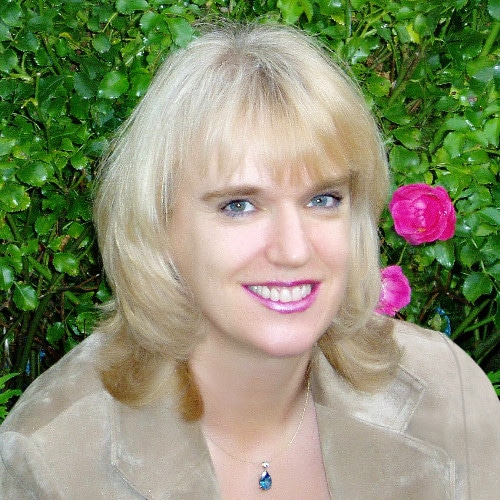A violist lifts the lid on streaming fees
mainFrom evidence presented this week to the House of Commons Digital, Culture, Media and Sport Committee:
My name is Rachel Bolt and I am a professional viola player, whilst you will not be familiar with my name you will hear my performances everywhere you go.
I have recorded for artists such as Adele (the albums “19” and “21”), Amy Winehouse (“Valerie”, “Rehab”), Robbie Williams, Take That, Sam Smith, Emily Sande, One Direction and Joni Mitchell to name a few.
These recordings were all done under the British Phonographic Industry/Musicians Union agreement. The current fee for this £130 for a three-hour session and I frequently record four or five tracks in a session.
For example, my fee for the Amy Winehouse recordings “love is losing game” “back to black” and “rehab” was £113.40 for all three recordings under this agreement at the time. Likewise, my fee for four tracks from the Adele album “19” was £151.20.
Of course in order to do these recordings I have to provide my own instruments and bows, the current value of which is around £70,000,I also have to pay to maintain and insure these. As you can see this is a huge amount in relation to the fee I am earning from the
recordings themselves. As a session musician I do not receive any income from streaming whatsoever.
My royalty income for radio broadcasts is paid to me via PPL and is vital to me as otherwise the frequency of sessions and the fee for the recordings would not constitute a livelihood. I understand that the reclassification as “communication to the public” rather than “making
available” would generate a fair income for me and urge you to consider this.
Thank you.
Rachel S Bolt

Rachel has performed as principal viola for the Academy of St Martin in the Fields, the Philharmonia, London Sinfonietta, Britten Sinfonia, City of London Sinfonia, London Mozart Players, New London Orchestra, London Chamber Orchestra and the Royal Philharmonic Concert Orchestra.
Other testimonies:
From the cellist Francis Bucknall:
As a cellist in the London Philharmonic Orchestra (LPO) of 30 years’ standing I feel qualified to make the following observations:-
Over the past 30 years the LPO’s quantity of studio recording work has declined to almost nothing. I attribute this to the availability of the number of high quality recordings of the repertoire now in existence, and, more recently to the ease of access to free and unlimited (by subscription) streaming of recorded music.
In contrast to this reduction in our remunerated work, I see a huge increase in the streaming of music, for which WE THE ARTISTS receive no payments whatsoever. PPL (Phonographic Performance Limited) are doing a great job in recovering what they can from radio broadcasts etc. but so far I believe that the vast profits available to the streaming service providers are beyond their reach. I do not think this acceptable in this day and age!
As a member of one of the world’s most recorded ensembles, it is sad to see so little in return for this use of my orchestra’s recordings, which I believe to go beyond the contractual agreement under which I performed.
If I had created a painting or a sculpture, or anything of worth, I would expect to hold the rights of reproduction in my name, or that of my organisation, and hence (if lucky enough to be in demand) expect a return on profits from its reproduction and sale.
From the violinist Madeleine Mitchell:
o DCMS Commons Select Committee – Evidence re Streaming etc
Thank you for looking into this situation.
As a professional musician I rely for my livelihood on live concerts, recording and a small amount of teaching. I have performed in 50 countries as a soloist over nearly 4 decades. I’ve made 17 albums, quite often broadcast on radio, some of which have been nominated for Grammy and BBC Music Awards, mainly of pieces written for me by well known British composers and 1st recordings of music by British composers such as Grace Williams (1906-77). My album last year for Naxos of her previously unrecorded chamber music with my London Chamber Ensemble was no.2 in the Classical Charts on release on International Women’s Day 2019 and Guardian CD of the Week.
In order to submit evidence for this enquiry I wrote to Spotify to ask how much I’ve received for the 46,000 plays of a track of a violin piece written for me by Michael Nyman CBE, called Miserere * They replied to say revenue is channelled through the record company or their distributer. So I wrote to NMC for whom I recorded the album In Sunlight: Pieces for Madeleine Mitchell (also including 2 works written for me by Sir James MacMillan) for which I receive an 8% royalty and they said I’ve received less than £10 in total for all the streaming/downloads since this album was released in 2005. The last biennial statement (dated 13.3.20) shows I received £1.68. For my other albums (including the Naxos album above) I don’t even receive that as there are no royalties. This sort of revenue is not channelled through PPL either, only for broadcasts (see below). I also wrote to Divine Art for whom I’ve recorded 2 albums to enquire about another popular track on Spotify – Atlantic Drift by Master of the Queen’s Music, Judith Weir CBE and they estimate $6. My payment this year from PPL was for £63.72, last year about half this amount. I pay £15 per month to Spotify as a professional musician so I can listen to music e.g. on my phone.
This is truly appalling that as an artist I do not receive anything like a reasonable amount for the plays of my recordings. It is grossly unfair that these big companies like Spotify and others don’t pay much more back to musical creators and performers.






This is a complete and utter disgrace, and I hope that legislation will be brought forward to rectify this .
How on earth can a time put “thumbs down” to this comment?!!!
Thumbs down can only come from someone who does not want musicians to have ” equitable ( ie fair) remuneration ” for their recordings…. guess is record labels or their shareholders?
So if not from the streaming, when do repeat payments get paid ? Is it from radio broadcasts or CD sales ?
As long as Spotify does not make any profit, it will not happen. (Spotify has never had a profitable year)
They probably need the artists royalties to pay their tax consultants..
This is incorrect in two ways. 1) Spotify, like any venture capital funded tech business, fixated upon market-share not profitability. They are making extraordinary amounts but they are pumping it back into expansion across the globe. 2) Were Equitable Remuneration to be paid it would most likely come from the Master Right share presently set at 52% (as opposed to the platform’s 30%) so it would in no way affect Spotify’s bottom line.
I honestly was quite shocked, at the beginning of lockdown (first one), to get an email from the Tallis Scholars encouraging us to listen to them and their playlists on Spotify, as a way to help their financial situation. In my mind, even though the Tallis are probably one of the most streamed classical choirs/vocal ensembles in the world, the money they get out of it must be negligible. I wonder how much they make on an average year, for them to advocate it as a way to support their artistry.
David Joseph from Universal severely reprimanded by select committee for lack of clarity.
https://twitter.com/mrtomgray/status/1351673497727225856?s=21
Since residual checks have become non-existent in this Brave New World of streaming, perhaps the answer is to raise the upfront fee of the session and have tiers of wage scales for a three hour session.
For example, playing on a track for a well known artist who one be predicted to sell millions of streams, would pay a hefty fee to their backup artists.
An unknown composer who is not well known would pay much less.
What is clear is that individual musicians cannot track the streaming quantities and the income from each individual stream is paltry and no longer represents a meaningful income stream.
This inquiry is to decide whether to legislate for a system of “equitable remuneration ” or to leave things as they are….
https://musiciansunion.org.uk/all-news-and-features/fix-streaming-now-equitable-remuneration-and-transparency
Dreadful state of affairs but sadly predictable once any old talentless git could produce and market their own ‘music’ and Big Tech provide the public with the means to listen to it all for free.
And you are somehow suprised by all this??
Do you imagine it has ever been different for the people who recorded the music in the first place?
The entire industry has been finely calculated to fleece the people who do all the work.
When I subscribed to Idagio one of their selling points was they claimed to be more fair to the artists. So that’s one alternative to Spotify.
The cellist makes a good point about reduced work over the years from “…..the availability of the number of high quality recordings of the repertoire now in existence”
Really – who needs yet another recording of Brahms IV ?
There is certainly merit in the argument that there are too many recordings of the “standard rep” and not enough of other works, but the point remains that money *is* being made from recordings of the “standard rep”, but hardly any of that money is reaching the musicians.
But in any case, Bolt’s and Mitchell’s submissions both refer explicitly to compositions that are either recent or obscure (Bucknall’s does not refer to any specific composer or work, although I suppose one could analyse the LPO’s discography over the last 30 years to ascertain the balance between “standard rep” and other works). All three submissions quoted above are from well established professionals (as it happens, I have the CD of Mitchell’s /In Sunlight/) — the fact that these performers make so little from streaming despite having many listeners demonstrates that there is something very wrong with the system.
The system is broken and it needs to be fixed
“If recorded music revenues were paid out fairly to artists then we might not have seen over 20,000 applications to hardship funds in the first few months of the Covid-19 crisis,” said MU Deputy General Secretary Naomi Pohl in a joint Fix Streaming statement with The Ivors Academy.
“Recorded music must play its part in sustaining the livelihoods of the musicians and songwriters. We can’t have labels announcing record profits while our members are quite literally unable to put food on the table. The system is broken and it needs to be fixed,” she added
I’m a new singer songwriter but I’m sadly wondering if there is any point even starting with so little support out there. I’m not out for big money but enough to get by but streaming can’t even buy a morning coffee.